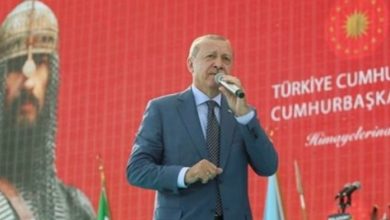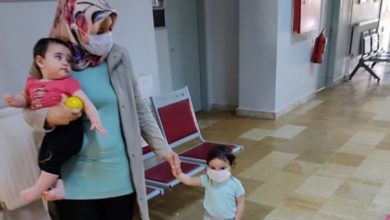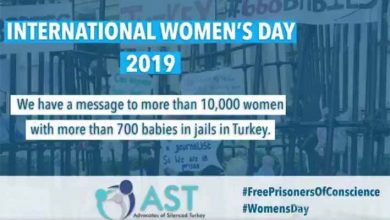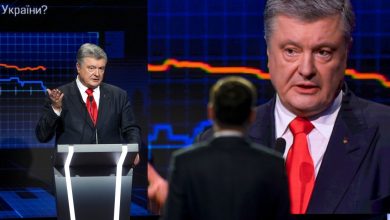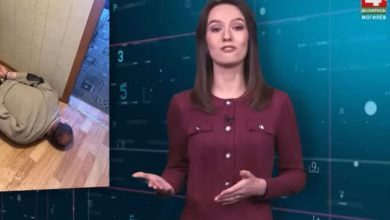Turkish opposition’s complicity on clear display over Syria incursion
A wind of terror began sweeping Turkey in 2015. Those who believed they could prosper through oppression began terrorising their own people that year.
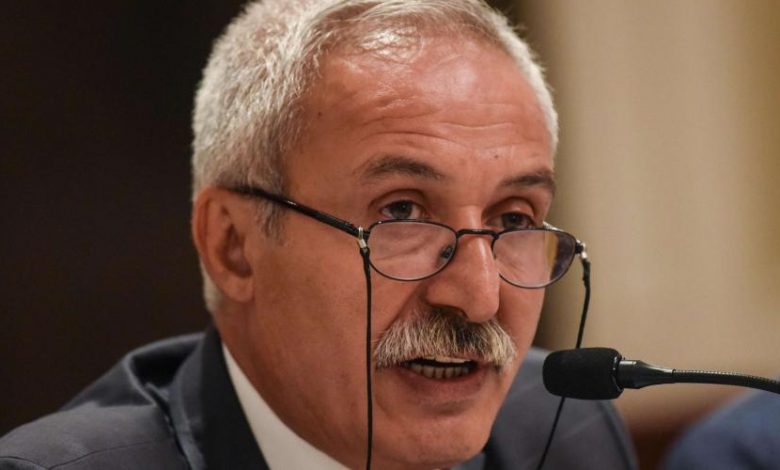
Those who threw us behind bars will realise their mistake, because they cannot stop our hope from blooming in the jail cells and flowing out.
They thought they could solve their problems by arresting us, but if they knew history, they would see that their efforts will not work.
A people gains invincibility through resistance. We have not been defeated. We will continue walking even taller from the place we fell.
A wind of terror began sweeping Turkey in 2015. Those who believed they could prosper through oppression began terrorising their own people that year. The detentions, arrests, torture and death they perpetrated gathered pace like an avalanche.
Even while they were ratcheting up the oppression in 2018, we took a sliver of hope from the elections that June. This took root even deeper with our victories in the local elections this year in March. Within months, the government began its attempts to drown our hopes.
The moment the government saw the opposition begin to come together to organise and form a democratic bloc, it set to work using all means at hand to destroy this unity.
The dismissal of democratically elected mayors in August and appointment of government-endorsed replacements was the beginning of a coup. The governors and interior ministry began corresponding on how to replace our mayors before votes in the March 31 elections had even been counted.
They chose this method the moment they realised they would lose at the ballot box, seeing it as a way of imposing martial rule on the region.
While any form of democratic protest against this coup has been prohibited, the government has brought protesters to the headquarters of my party, the pro-Kurdish Peoples’ Democratic Party (HDP).
But the truly saddening aspect of this period is that the democratic bloc that began to form with great sacrifice before the local elections has remained silent.
The main opposition Republican People’s Party (CHP) in particular has shown how statist and conservative it is with its silence.
The government replaced our mayors, but it was unable to quell the dissent from within its own party. Pinning the blame for its waning power on the Kurds, it directed all its violence their way.
The latest example of this is in Rojava – the autonomous administrations in northeast Syria that Turkey attacked in its military operation. The government found an excuse to launch its offensive without provocation, seeking to destroy the gains made by Kurds who paid a great price in the campaign against the Islamic State.
The decision to go to war was taken in the Turkish parliament.
Every party but the HDP agreed to this war. The CHP, too, endorsed the operation, despite professing to honour Turkish Republic founder Mustafa Kemal Atatürk’s motto urging “peace at home, peace in the world.”
The CHP leader said his party’s decision to support the incursion was “agonising,” but this is a great deception.
The party’s nationalist and statist wings routinely ignore human rights and the law – all the more so when Kurds are involved. Yet it also includes and protects a handful of social democrats and other opposing voices, as if to convince itself and others that it is an inclusive party for leftists and minorities, in this way also tying some sections of the opposition to itself.
This is the situation today, as well – the CHP as always has acted almost as a spokesman for the government’s policies while the few democrats in its ranks give messages to opposition segments.
In this way they prevent an anti-government front from being formed.
Sadly, the few opposing voices and valuable people within the CHP do not have the power to shape policy and change this.
We have seen this in the clearest possible terms in the party’s agreement to authorise the war.
A democratic bloc is an absolute necessity, as the only way to allow this country to breathe. Thus it has turned into an indispensable need to form such a bloc above parties.
The creation of such a formation, in which all can express themselves and form a resistance to injustice, lawlessness, fascism and war, would bring hope to this country. For that reason, it is an unquestionable necessity.
Thus our efforts must go towards strengthening this bloc. The Kurds are both the cornerstone of this structure and a litmus test for Turkey’s democracy.
Besides this, as Kurds we are forced to form our own national unity. The experiment of Rojava has shown this all the more clearly.
While the international public went no further than condemning the operation and Turkey’s Justice and Development Party government, the Kurds as ever were left alone.
Because the Kurds are divided into parts in four different countries, Kurds in each part have been under constant attack and have been unable to establish internal unity. This have prevented us from developing into a nation.
We saw this two years ago, when Turkey, Iran and Iraq quashed the hopes of the Kurdistan Regional Government to establish an independent state after holding a referendum in Southern Kurdistan. And we saw this again in Rojava, where the attack by Turkey was not directly solely against Syrian Kurds. They knew that if the Rojava experiment had been successful in northern Syria, then the Kurds in other countries could be successful, too.
The head of the Kurdistan Regional Government, Massoud Barzani, has seen this more clearly than most, and after Turkey’s attack spoke of the necessity for Kurdish unity as soon as possible. He called on Kurdish intellectuals, writers, artists and political leaders around the world – and most importantly, on the Kurdish people themselves – to develop this unity. This was a very significant and meaningful statement.
Before the local elections the HDP led the drive for unity at the ballot box. We gathered the support of many Kurdish parties, but this alone was not enough. What we need is a supra-party unity that encompasses all parts of the Kurdish world.
Kurdish politicians and thinkers should come together, discuss this point and take immediate steps toward a national unity without appropriating this movement for their own parties.
If not, we Kurds, among the oldest inhabitants of the Middle East, will forever face the possibility of genocide.
The AKP was unable to find the approval it sought for its operation abroad, but it did find it from the operation at home, at least for a time.
The ruling party wanted the opposition, which had drawn together, to lose its power, it wanted to silence the voices rising against it, and it wanted to continue its one-man regime.
The government wished recapture Kurdish cities it lost in the local elections by dismissing HDP mayors and appointing its own people to replace them, granting its supporters wealth through public tenders to build its own power base in these regions.
In doing this, it wished to throttle the hopes that had begun to bloom in Turkey.
Sadly, in many senses it has succeeded in destroying many of these in the space of a single week.
The AKP was unable to achieve its aims on the global political level, but it got what it wants from the public in Turkey.
Segments of Turkey’s opposition helped it achieve this. Those who carried water for the AKP are to the highest degree responsible for the pain that the ruling party has wrought.
Yet we still refuse to give up hope despite this, and will continue to resist by declaring national unity and rebuilding a democratic bloc.
Source: Ahval
